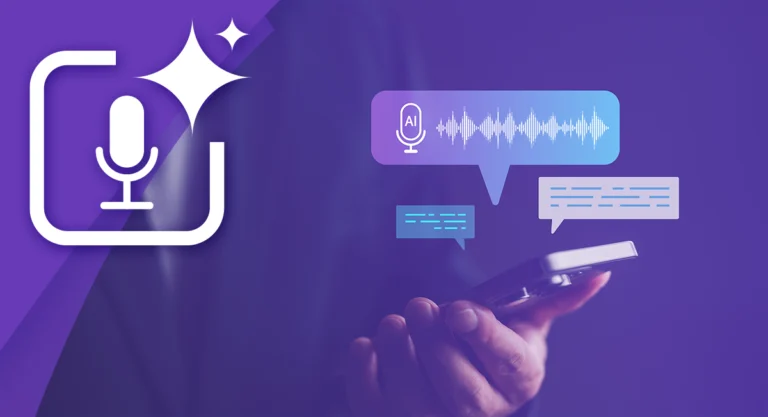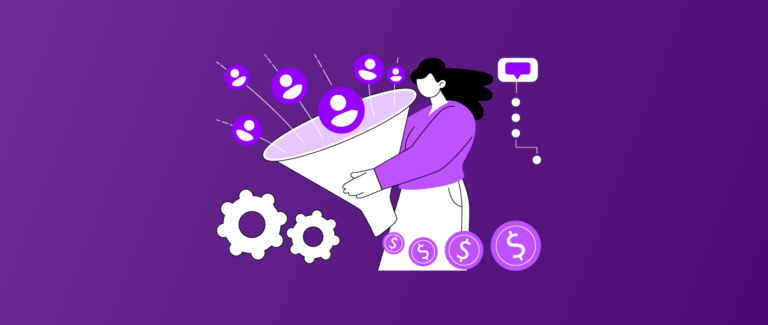What if every lead heard from you within seconds of filing lead form and more of them turned into paying customers?
Imagine a system where no lead ever goes untouched, and your first outreach happens when curiosity and intent is at its highest. And this is often within moments of the lead entering your CRM.
With AI-powered calling agents, SaaS companies are moving closer to an operational model where outreach efforts do not depend on time zones or team capacity.
And no.. it is not about replacing people. But, about building more meaningful and timely connections at scale.
Intelligent communication systems are now playing a central role in how businesses initiate and grow customer relationships.
For SaaS companies, which often depend on recurring revenue and strong onboarding experiences, this shift in communication strategy has significant implications.
What is SaaS sales cycle?
The sales journey in a SaaS business tends to follow a logical sequence: attracting a prospect, qualifying their interest, offering a trial or demo, and guiding them through the evaluation phase before closing the deal.
While the steps may look straightforward on paper, the actual process is often more unpredictable. Prospects explore alternatives, hesitate over pricing, or disappear mid-conversation.
However, what remains consistent throughout is that leads are the most important asset in the process.
The leads are generated through content marketing, paid acquisition, referrals, or outbound efforts come with a cost and often with an expiration date.
The moment someone fills out a demo request or downloads a whitepaper, the clock starts ticking. Their intent is fresh, their curiosity active. Every hour that passes without meaningful engagement reduces the chances of converting that lead into a paying customer.
Responding to a lead in five minutes instead of thirty can increase conversion rates significantly. But consistently meeting that response time across hundreds or thousands of inbound leads is a challenge for any team, no matter how skilled or well-resourced.
What are the challenges faced by SaaS sales teams?
Most SaaS businesses already understand the importance of speedy and personalized interaction with the leads. But understanding alone isn’t enough.
There are structural and operational barriers that get in the way, including:
- Delayed outreach: Even high-performing teams often take hours, or even days, to respond after a lead enters the CRM. This delay can be due to workload, shift timings, or lack of real-time alerts.
- Inconsistent follow-ups: Sales reps may forget to follow up on time, miss key details, or deprioritize leads based on subjective judgment.
- Team capacity limits: No matter how well-staffed a team is, there’s a limit to how many conversations can happen in one day, especially with outbound calling.
- Qualifying the leads: Not all leads are equal, and not all need a sales rep’s time. But failing to identify high-potential leads early in the process can result in missed revenue.
These challenges are not a result of poor planning. They stem from the fact that human-led processes don’t scale infinitely. The more leads a team handles, the harder it becomes to maintain speed, personalization, and consistency across the board.
So, what’s the way forward?
At this point, many SaaS companies are turning to AI calling agents as a way to bridge this gap.
What is an AI calling agent and how does it work for SaaS Sales?
An AI calling agent is a system that can initiate voice conversations with leads using artificial intelligence trained in human speech, decision-making, and sales logic.
These agents can call a lead, ask relevant questions, respond intelligently, and even schedule appointments or pass the conversation to a human when necessary.
The process often looks like this:
- A new lead enters the system through a form, chatbot, ad campaign, or manual upload.
- The AI calling agent contacts the lead immediately, often within seconds.
- The agent engages the lead in a conversation, collecting information like the requirement, company size, current tools, or budget.
- Based on real-time input, it determines the next best step such as booking a meeting, sending additional information or routing the lead to a sales representative.
The calling agents are built to adapt to tone, intent, and context. They can handle objections, answer basic questions, and maintain a natural rhythm that feels like real human-to-human conversation.

Key capabilities to look for in an AI calling agent for SaaS sales
SaaS sales cycles typically involve technical buyers, multiple decision-makers, and complex qualification logic. The right AI calling agent should be built to thrive in this environment.
Here’s a focused checklist of must-have capabilities for B2B SaaS teams:
1. SaaS-specific conversational intelligence
Train AI agents on SaaS-specific sales data, not just generic conversations, to ensure relevant and effective outreach.
- Understands concepts like “free trial,” “ARR,” “API integrations,” or “onboarding timelines.”
- Can ask discovery questions like:
“What tools are you currently using to manage [X]?”
“How many users would need access?”
Detects buyer readiness based on SaaS-specific signals like feature requests, security concerns, or migration urgency.
2. CRM-native execution
Choose AI agents that operate natively within your CRM. True integration of AI calling agent with CRM means updating records, triggering workflows, and supporting real-time sales actions.
- Auto-create and update lead, opportunity, or deal records based on conversation outcomes.
- Custom mapping to your lead scoring model and qualification fields (e.g., industry, tech stack, employee count).
- Initiates or updates sales sequences automatically in tools like HubSpot, Salesforce, or Apollo.
3. Real objection handling
The best AI agents don’t freeze at “I’m not interested” or “We’re under contract.” Instead, they are:
- Trained to contextually respond to common SaaS objections like:
“We’re using a competitor.”
“I need to check with engineering.”
“Our budget is tied up this quarter.” - Escalates qualified but hesitant leads to human reps with transcribed context for a warmer follow-up.
4. Multilingual & role-aware communication
If your SaaS business serves multiple regions or engages cross-functional teams, your AI agent must adapt to both language and role-specific nuances.
- Supports regional dialects and localized phrasing (not just translation).
- Adjusts tone when speaking to a CTO versus a growth marketer.
- More technical depth with product roles.
- ROI/value-focused for revenue leaders.
5. Lead segmentation & dynamic playbooks
Not every lead requires the same approach. A well-designed AI agent should adapt its outreach based on the lead’s source, profile, and stage in the funnel.
- Deploy different conversation flows based on source (e.g., demo request vs. Pricing page visitor).
- Customize language and qualification logic to ICP tiers, geo, or industry.
- Run mid-funnel cadences (e.g., post-trial re-engagement) without human trigger.
6. Conversational intelligence & sales insights
In addition to call transcripts, expect advanced conversational intelligence that highlights key themes, extracts intent signals, and delivers actionable insights to optimize your sales strategy.
- Keyword extraction (e.g., pain points, competitor mentions, deal blockers).
- Conversation scoring based on sentiment, engagement level, and intent signals.
- Auto-tagging by themes, such as compliance concerns, pricing pushback, readiness stage.
Benefits of AI calling agents in B2B SaaS sales
AI calling agents are changing how B2B SaaS companies manage lead engagement and early sales interactions. They introduce speed, consistency, and structure into a process that has historically been difficult to scale efficiently.
Here’s how they bring meaningful advantages to modern sales operations.
- Immediate contact with every lead
AI calling agents are designed to act on new lead data the moment it enters the system. There’s no waiting period between when a lead shows interest and when the first outreach is made.
The speed of first contact ensures that interest is acknowledged while it’s still active, which significantly increases the chances of a productive first conversation.
This immediate follow-up also signals professionalism and responsiveness, which helps build a positive first impression. When companies reach out at the right moment, it sets the precedent for the rest of the sales journey.
- 24/7 availability, always ON
AI calling agents engage leads the moment they enter your system. No matter if it is day or night, weekday or weekend. They don’t wait for business hours or depend on team availability.
Instead, they keep your outreach process running around the clock.
With this always-on capability, your team can:
- Contact every lead while their interest is fresh, resulting in no delays, no missed windows.
- Support high-volume campaigns, product launches, and global outreach without stretching resources.
- Handle spikes in lead flow instantly, whether it’s 100 or 10,000 new contacts.
Since AI agents deliver consistent, real-time engagement at scale, they eliminate bottlenecks and ensure your pipeline stays active. No matter when or where leads come in!
- Focus on sales-ready leads
By design, AI calling agents are programmed to gather qualifying data from the very first interaction. They ask structured questions and identify criteria such as company size, use case, budget, or urgency. Once the criteria are met, they can automatically route the opportunity forward in the sales process.
This ensures that sales teams receive leads that are aligned with the business’s target profile. It also reduces time spent reviewing or triaging leads manually.
- Structured and consistent lead qualification
AI calling agents follow a standard logic when evaluating leads. Every lead is asked right questions in the right order, ensuring uniformity in how qualification data is collected and interpreted.
This structure improves the accuracy of sales forecasting and reduces inconsistencies in how leads are scored or prioritized. It also makes it easier to audit performance and improve messaging, since all conversations are tracked with the same underlying framework.
- Ongoing engagement for cold or mid-funnel leads
Many leads show early interest but are not yet ready to take action. AI calling agents can maintain ongoing contact with these leads over time. They reach out at regular intervals, check in, and requalifying when appropriate.
This type of persistent follow-up ensures that cold leads aren’t forgotten and that potential buyers remain engaged until their timing aligns with the sales motion. Over time, this helps improve conversion rates from long-cycle opportunities.
- Detailed interaction data and insights
Every interaction conducted by an AI agent is recorded, transcribed, and categorized. This provides full visibility into what prospects are saying, what questions they’re asking, and what objections or barriers are emerging during conversations.
With this data, companies can track lead behavior more closely, identify patterns across different segments, and improve their messaging or qualification criteria. These insights can inform decisions across sales, marketing, and product teams.
Closing the loop
AI calling agents do not replace human relationships in SaaS sales. What they do is enhance the efficiency, responsiveness, and reach of your sales team. They ensure no lead is left behind, and that your human reps spend their time doing what they do best, which is building trust, answering tough questions, and closing deals.
In a sales environment where every minute counts and every lead costs money to acquire, AI calling agents offer a way to move faster, work smarter, and grow without friction.
Because in the race to win customers, it’s not just about more calls.. it’s about the right call, at the right time.





